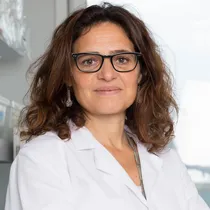- Accueil >
- Publications >
- Autoimmunity affecting the biliary tract fuels the immunosurveillance of cholangiocarcinoma
Autoimmunity affecting the biliary tract fuels the immunosurveillance of cholangiocarcinoma
Auteurs
Juliette Paillet, Céleste Plantureux, Sarah Lévesque, Julie Le Naour, Gautier Stoll, Allan Sauvat, Pamela Caudana, Jimena Tosello Boari, Norma Bloy, Sylvie Lachkar, Isabelle Martins, Paule Opolon, Andrea Checcoli, Agathe Delaune, Noémie Robil, Pierre de la Grange, Juliette Hamroune, Franck Letourneur, Gwennhael Autret, Patrick S.C. Leung, M. Eric Gershwin, Jie S. Zhu, Mark J. Kurth, Bouchra Lekbaby, Jérémy Augustin, Youra Kim, Shashi Gujar, Cédric Coulouarn, Laura Fouassier, Laurence Zitvogel, Eliane Piaggio, Chantal Housset, Patrick Soussan, Maria Chiara Maiuri, Guido Kroemer, Jonathan G. Pol
Résumé
Cholangiocarcinoma (CCA) results from the malignant transformation of cholangiocytes. Primary sclerosing cholangitis (PSC) and primary biliary cholangitis (PBC) are chronic diseases in which cholangiocytes are primarily damaged. Although PSC is an inflammatory condition predisposing to CCA, CCA is almost never found in the autoimmune context of PBC. Here, we hypothesized that PBC might favor CCA immunosurveillance. In preclinical murine models of cholangitis challenged with syngeneic CCA, PBC (but not PSC) reduced the frequency of CCA development and delayed tumor growth kinetics. This PBC-related effect appeared specific to CCA as it was not observed against other cancers, including hepatocellular carcinoma. The protective effect of PBC was relying on type 1 and type 2 T cell responses and, to a lesser extent, on B cells. Single-cell TCR/RNA sequencing revealed the existence of TCR clonotypes shared between the liver and CCA tumor of a PBC host. Altogether, these results evidence a mechanistic overlapping between autoimmunity and cancer immunosurveillance in the biliary tract.
Membres


